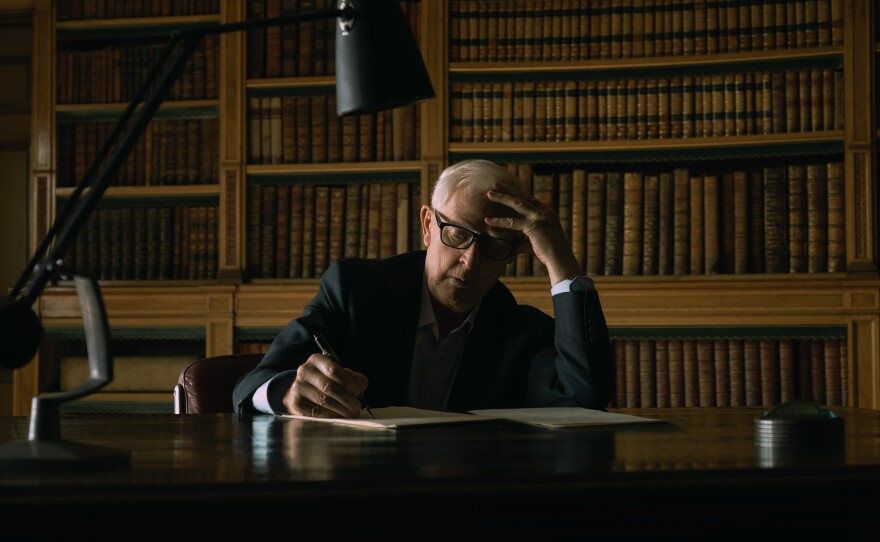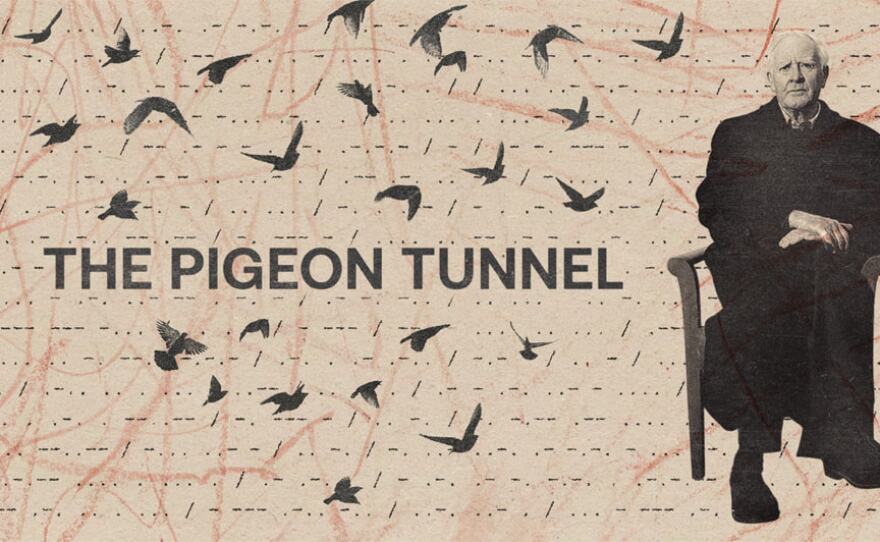This weekend, you can aim low with "Dicks: The Musical" in cinemas or aim high by staying home and streaming Errol Morris' new documentary "The Pigeon Tunnel."

The ridiculous: "Dicks: The Musical"
Generally speaking, I stay away from anything bearing a colon and "The Musical" in it's title. Modern musicals are bad enough for me, but if they feel compelled to put "Musical" in their title, then it feels like a flashing warning sign for me to stay away. So, I am not going to "Back to The Future: The Musical" or "Heathers: The Musical" because I don't want to encourage this blatant lack of originality. Also avoiding "Tiananmen: A New Musical" because I can't wrap my head around turning the Tiananmen Square Massacre into a musical and feeling the need to slap "A New Musical" as a subtitle as if that's the enticement people need to come see it. What next "Kent State: The Musical"?
My only exception to this rule is "Re-Animator The Musical," because the lead character sings his finale spraying blood from a rogue intestine trying to kill him. Now that's pushing musical boundaries!
So yes, I will fully confess to the fact that I am not a big fan of musicals, especially recent ones. But I went willingly to "Dicks: The Musical" because it is being released by the usually bold A24, an indie studio whose films I often love.
I get that "Dicks: The Musical" is playfully adding its identifying subtitle and taking the South Park approach of using a format/genre in order to send it up. It's all wink-wink-nudge-nudge-know-what-I-mean jokiness.
"Dicks" is amusing and ridiculous but surprisingly inoffensive. I'm sure some people will be shocked and offended but it takes a lot more than dirty words, sex jokes, blasphemy, and a flying p***y to make me gasp. "Dicks" may spew more obscenities than "South Park" and "Book of Mormon" but that doesn't make it edgy or daring because the context, the storyline, the cast, and the music all feel quaint. It's "Glee" with f-bombs but it's still "Glee." So while some people will likely love that idea, I just found it too cute and the music sounded too much like those bland Broadway show tunes I hate.
The best thing about the film was its end credits with outtakes. That was genuinely hilarious. I wish I liked the film more because the performers seems quite lovely and everyone seems to be having a good time (this is based on the outtakes).
Aaron Jackson and Josh Sharp star as the identical twins at the center of the film and they also wrote the script. Larry Charles of "Seinfeld" and "Curb Your Enthusiasm" fame helms the film with sitcom efficiency and energy. But nothing feels particularly clever. There is a clumsy amateurishness to the production values that seems a stylistic choice. I believe I saw dolly tracks left on the floor for a wide shot but too often those gags play less like a joke and more like an afterthought.
"Dicks" is like the new millennium version of Mickey Rooney and Judy Garland musicals. And what these new kids think is adorable is to use obscene words, try real hard to be offensive, yet also have a social cause and desire to make homophobes and misogynists uncomfortable. It's like a wannabe John Waters film, just without the audacity and satirical bite. Jackson and Sharp are like kids at their parents' party who want to put on a skit and see what they can get away with. They are darling boys, but I just wish the skit was shorter or funnier.
Criticizing "Dicks: The Musical" makes me feel a little like the stuffy British gentleman on the train with The Beatles in "A Hard Day's Night." So don't let me spoil your fun if this is your cup of tea. But forgive me if I just sneak out and go listen to my "Re-Animator: The Musical" soundtrack and sing-a-long to the Miskatonic Fight Song.

The sublime: "The Pigeon Tunnel"
Now to the sublime.
Not since "My Dinner with Andre" have I enjoyed a conversation on film more than this one. But this one prompted more self-reflection and contemplation.
Errol Morris is a veteran documentary filmmaker who has tackled topics as diverse as the pet burial industry, capitol punishment, hedge-trimming, and the horrors of Abu Ghraib. He has interviewed lion tamers and a naked mole rat expert as well as Stephen Hawking, Donald Rumsfeld, and Robert McNamara. I love that you not only never know what he might tackle next but that you also never know exactly what approach he might take.
"The Pigeon Tunnel" opens with Morris eagerly allowing the tables to be turned on him as his latest subject, David Cornwell, asks him, “Who are you? I've looked at much of your work. Sometimes you're a spectral figure, sometimes you're God, and sometimes you're present. I needed to know who I was talking to. Were you my friend across the fire? Were you a stranger on a bus? Who are you? This is a performance art. You need to know whether you're performing to the trade union, an elite audience. You need to know something about the ambitions of the people you're talking to."
Cornwell, better known by his pen name of John Le Carré, worked for British Intelligence and knows a little something about interrogation, which is part of what makes this film fun.
"There was this sort of idea that there were two interrogators in a room," Morris told me in an interview. "But I wasn't interrogating him. I never interrogate anybody. I was interested in having a conversation and exploring various themes with him."

That conversation proves riveting as Cornwell talks candidly and engagingly about his life and work, sometimes he even fabricates memories and then immediately confesses to the lies.
"He's a storyteller who delights in undermining his own stories as he's telling them," Morris said.
Morris uses interviews he conducted with Cornwell, some archive materials, and evocative re-enactments to weave his portrait of the late Cornwell, who died in 2020. We learn about his childhood with his con-man father, his work in British intelligence, and his approach to writing spy stories that were very specific to their times yet which resonate stunningly even today.
Morris' craft is at its peak here. He creates a vivid soundscape that helps drive the visuals and support the spoken narrative. He develops an easy rapport with Cornwell who seems to see this film as a final opportunity to just open up about not just his life and work but about his perspective on the world.
Cornwell emerges as such a delightful, contemplative and brilliant man that you wish the film would go on for another hour or two. You sense how much Morris is enjoying the conversation and the reason may be that Morris sees Cornwell as "a truly ethical, moral human being (who) believes passionately in right and wrong."
That is truly rare today and Morris’s documentary is a rare piece of expertly crafted filmmaking in which the director reveals more of himself than in any other film. The film bristles with intelligence and dazzles with its subtle, meticulous craftsmanship.
My full interview with Morris as well as with two of Cornwell's children is now available on Cinema Junkie Podcast.






